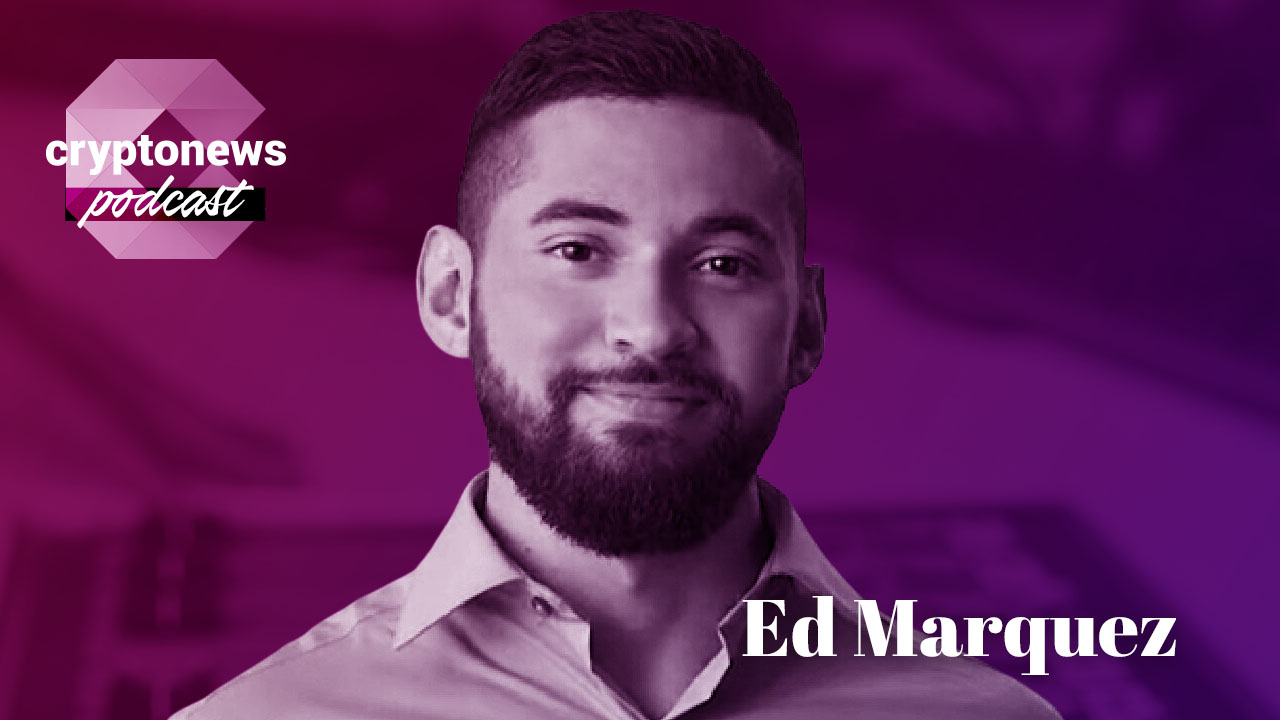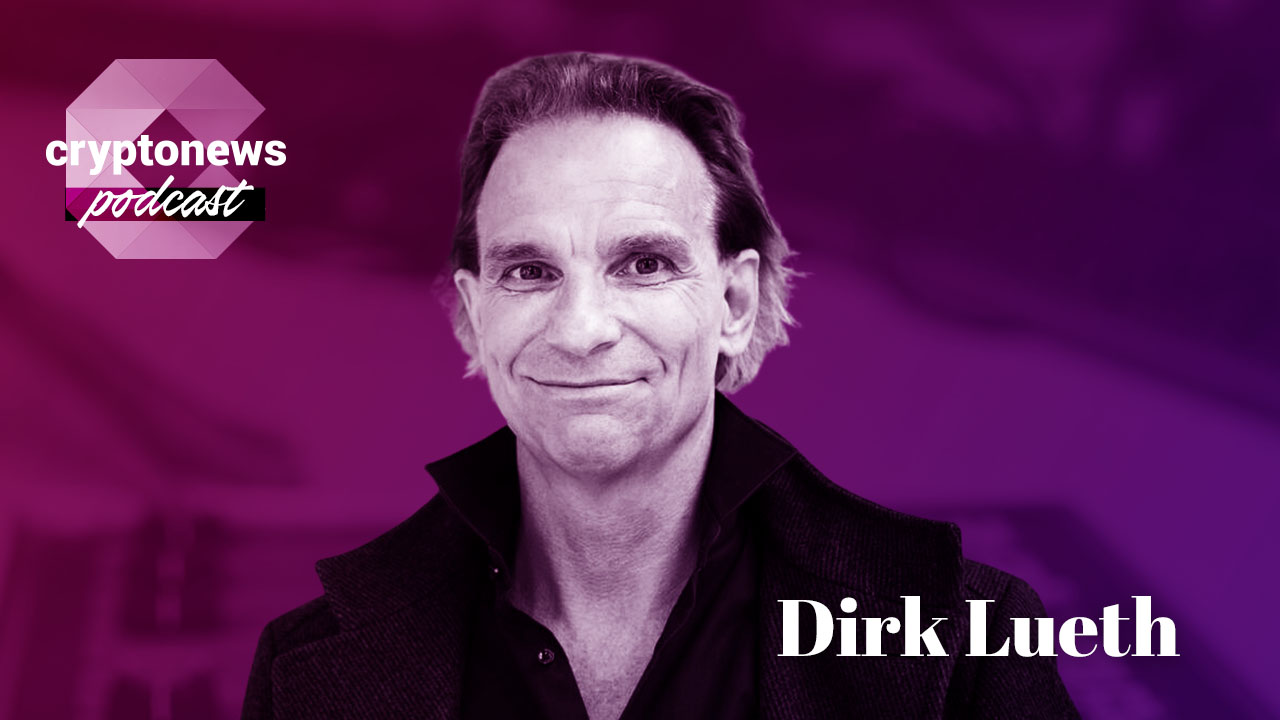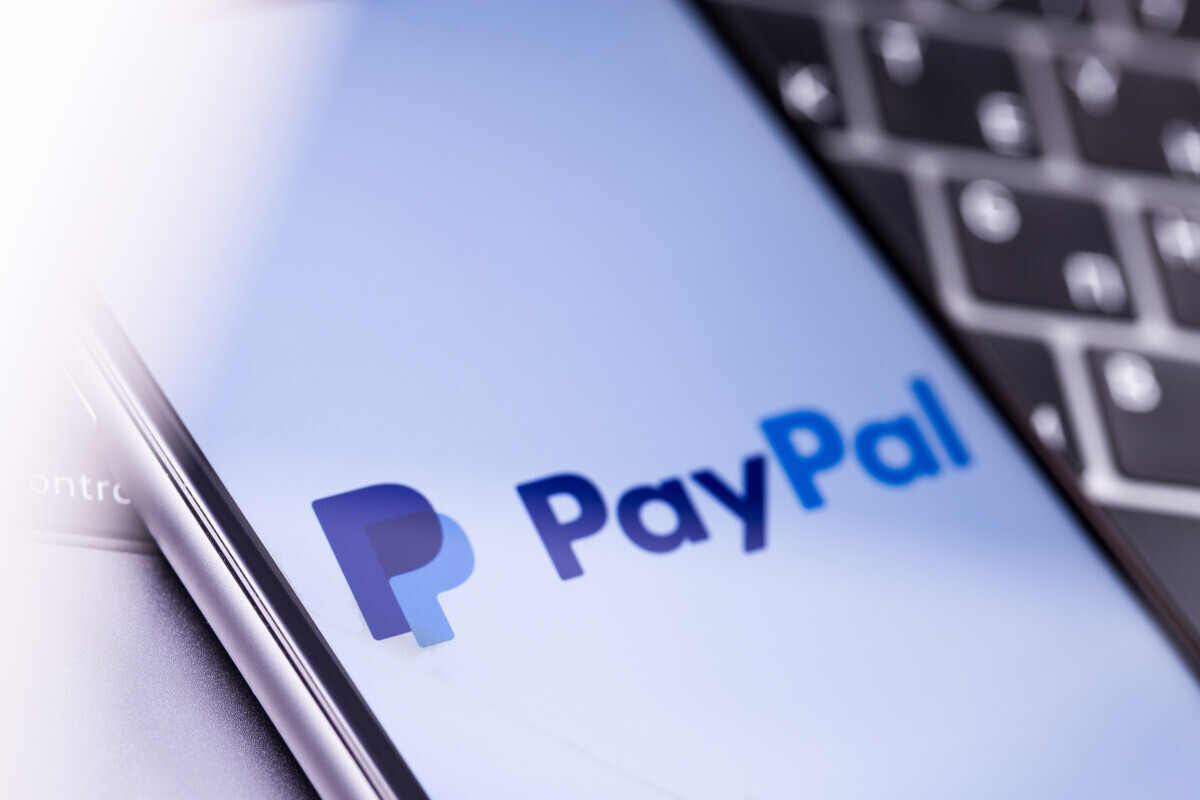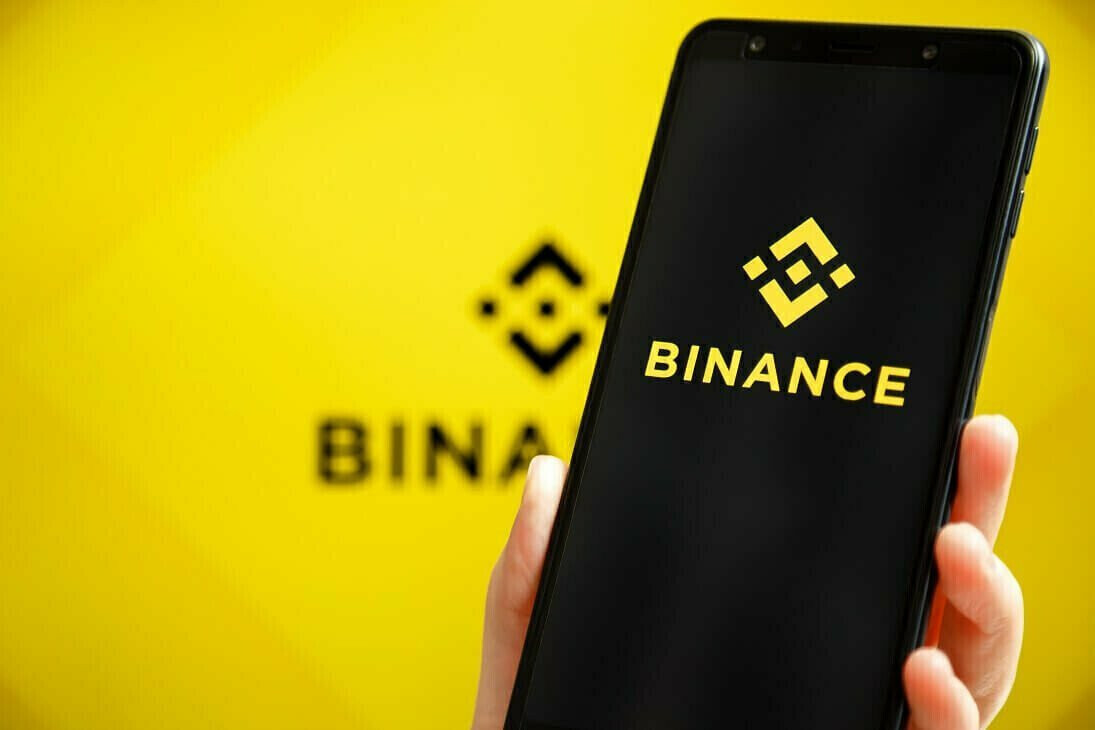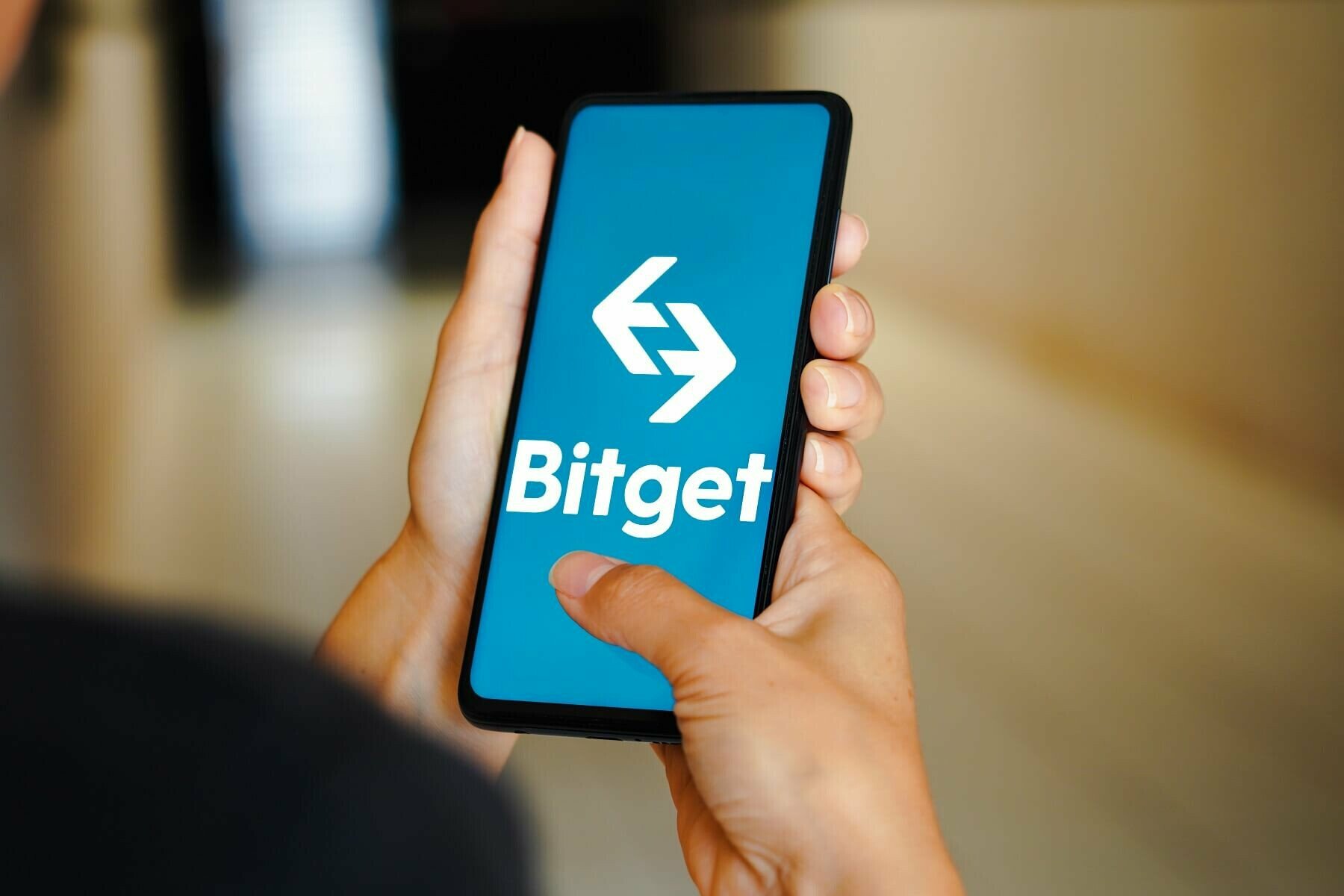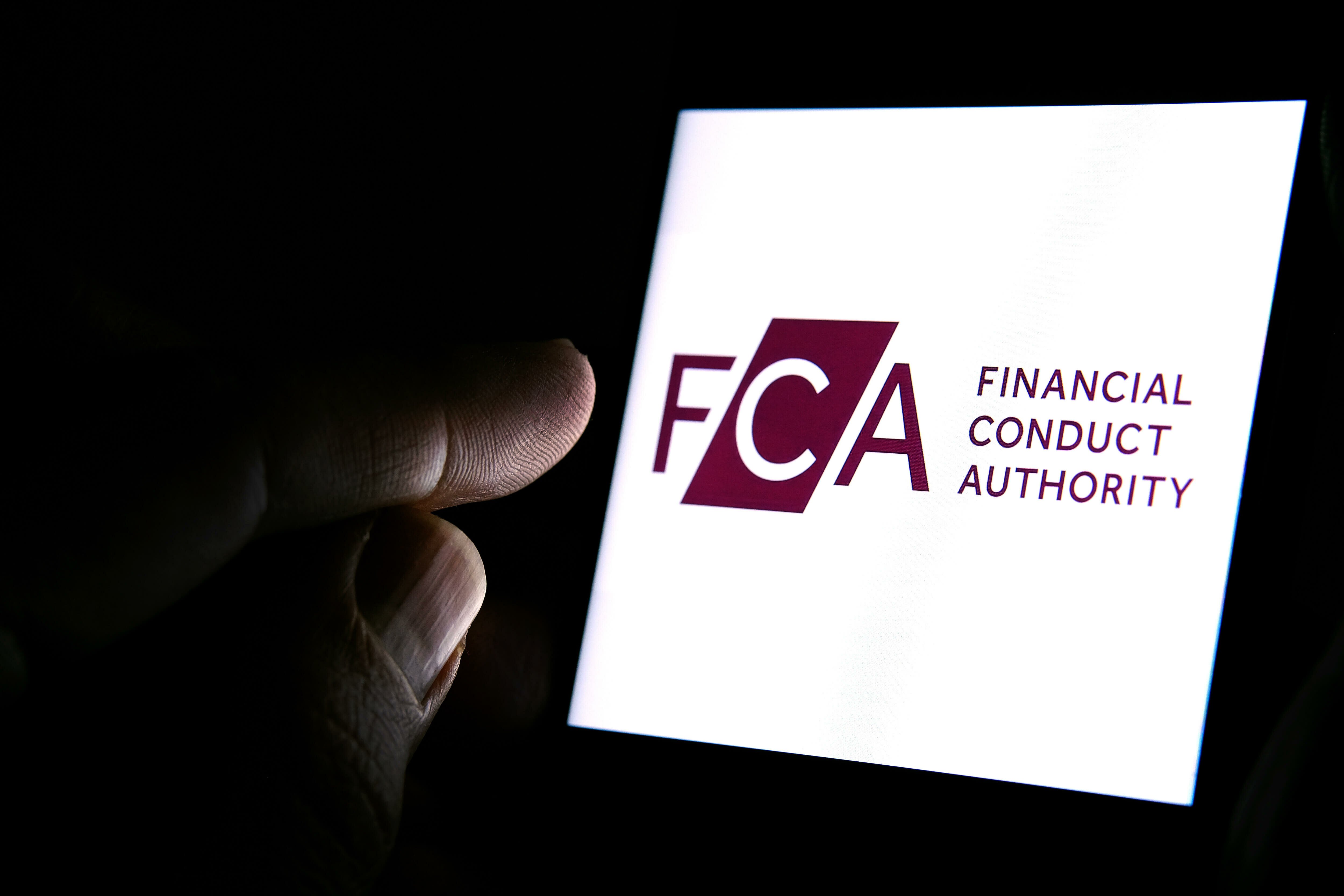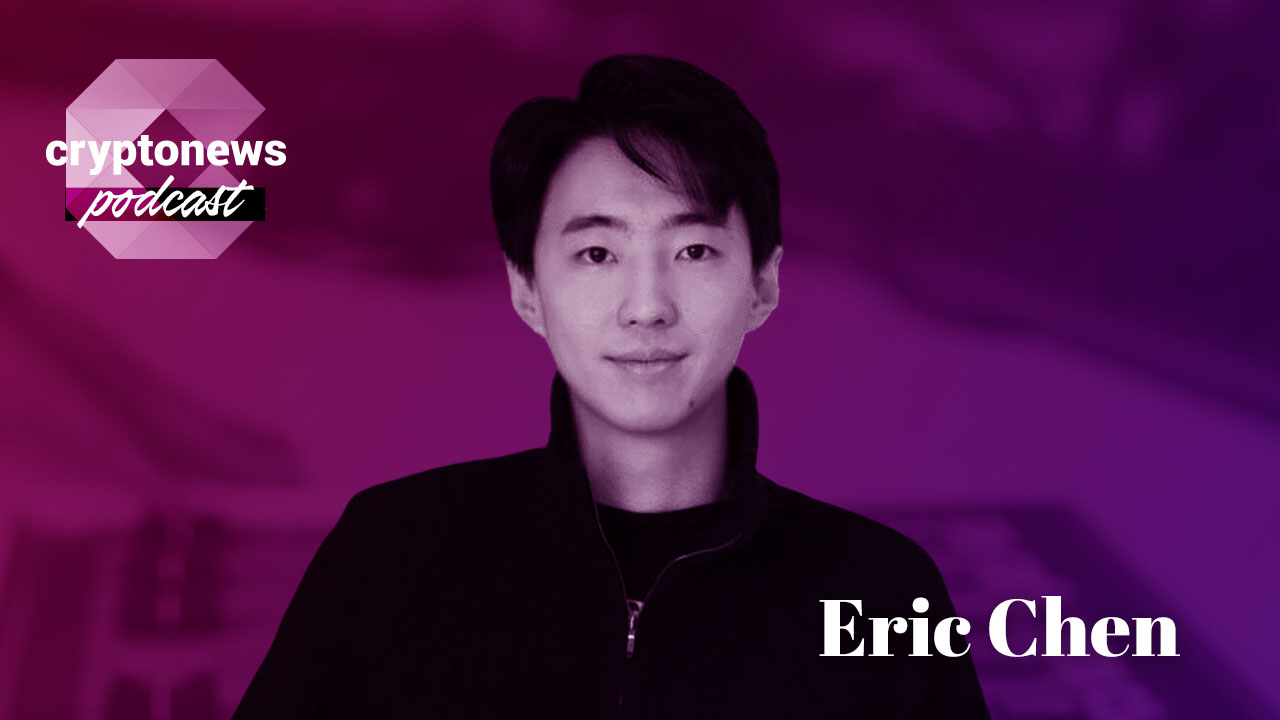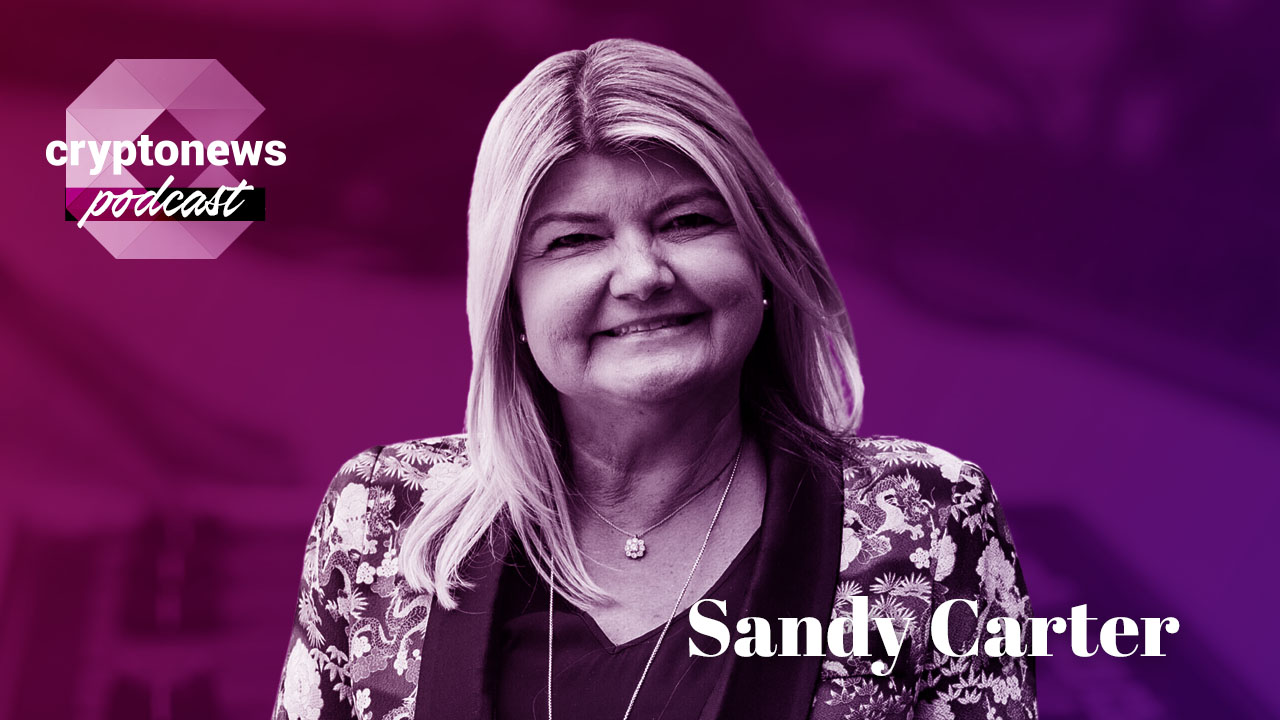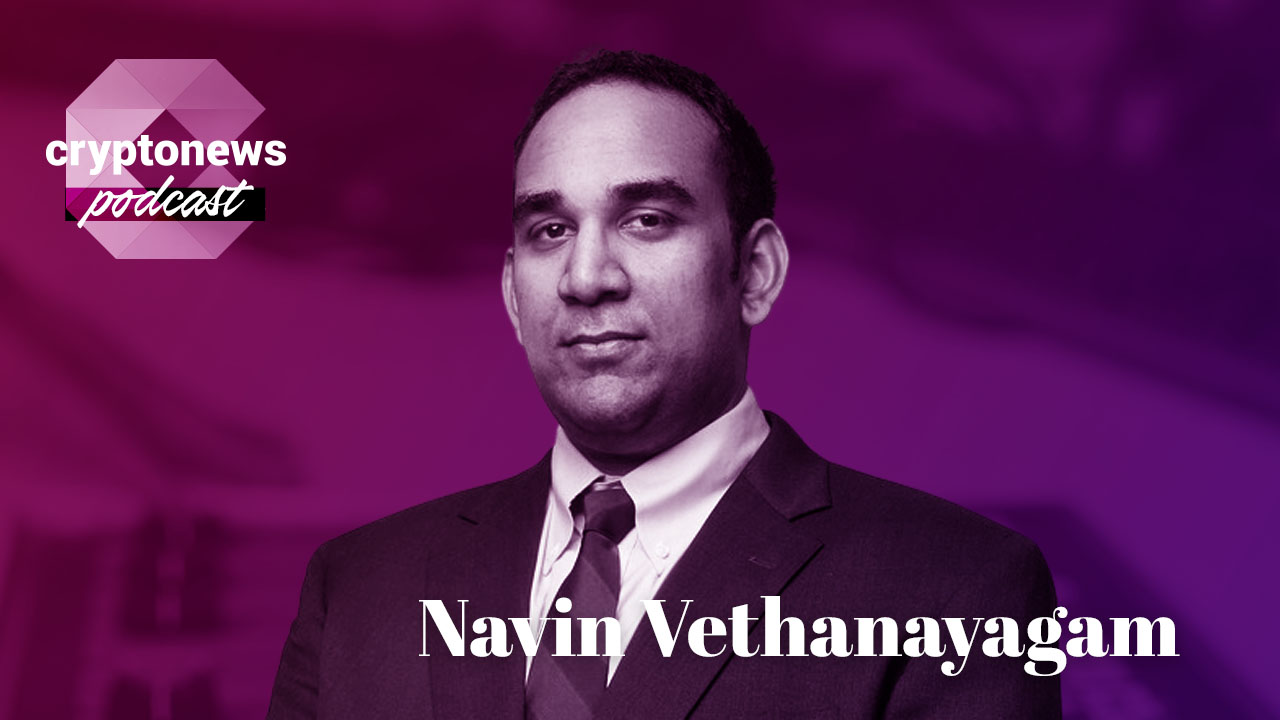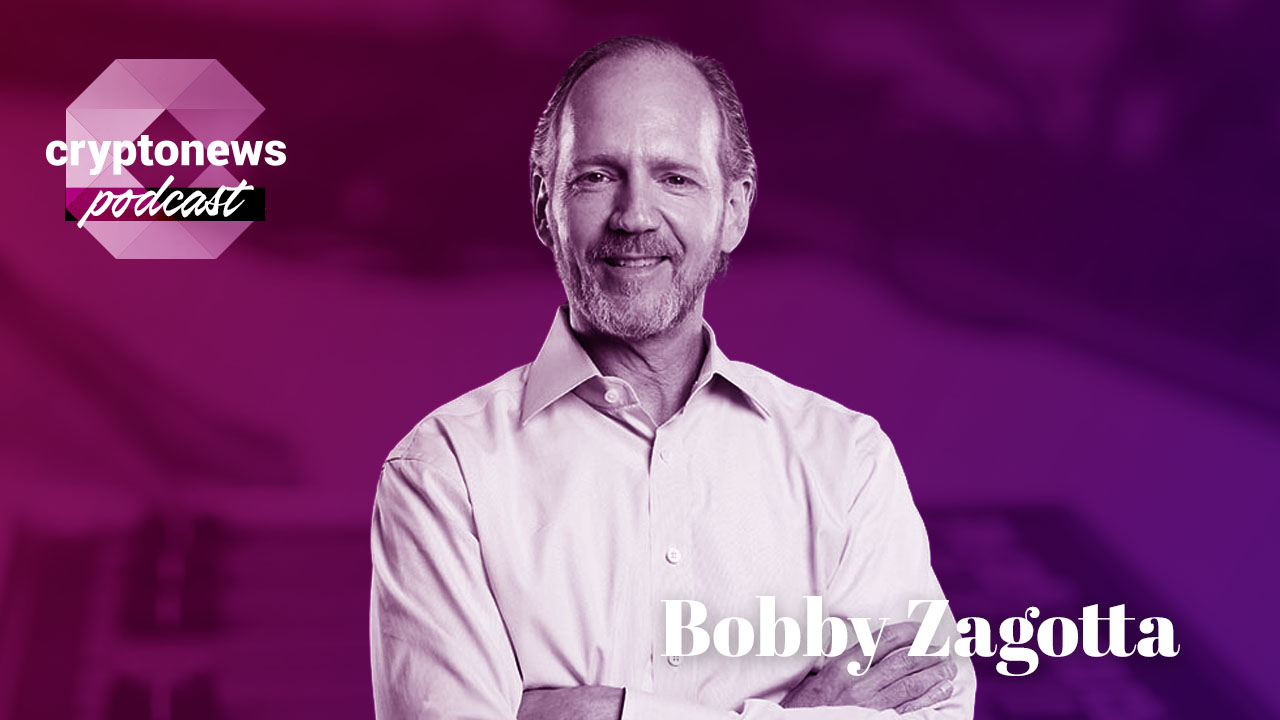Elena Nadolinski, CEO of Iron Fish Foundation, on Web3 Privacy, ZK Proofs, and L1s vs. L2s | Ep. 264
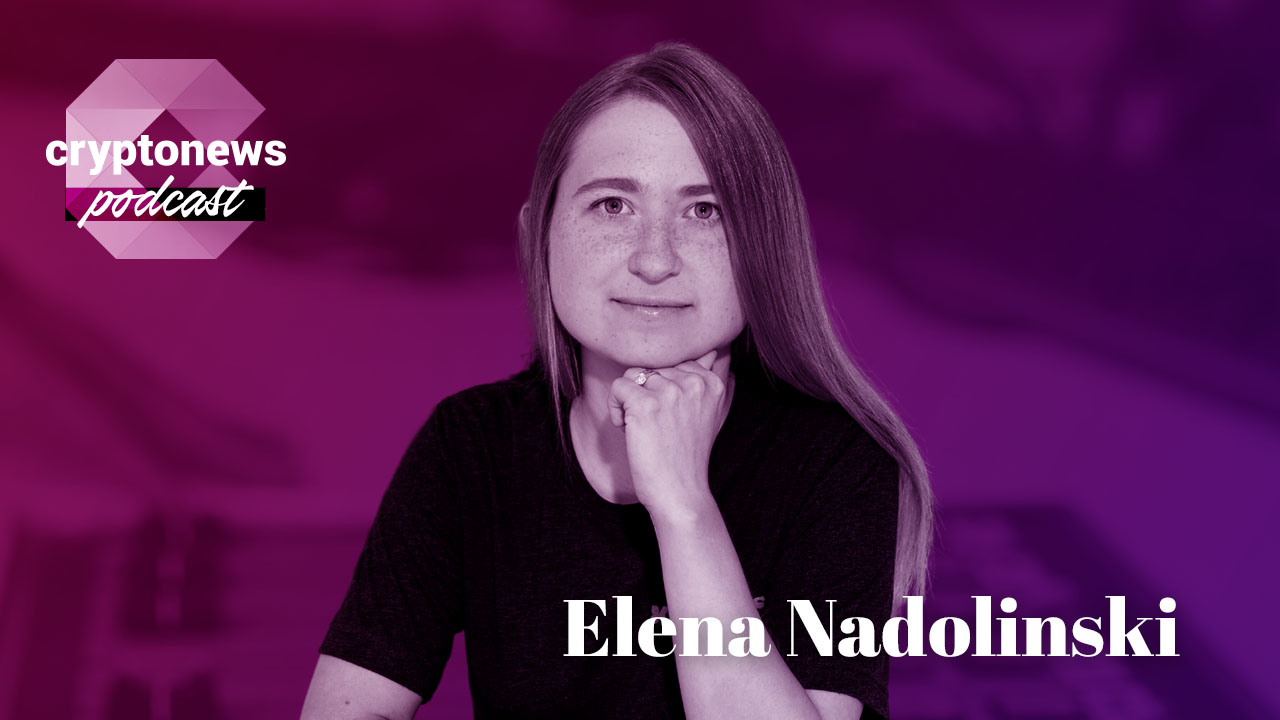
In an exclusive interview with cryptonews.com, Elena Nadolinski, CEO of Iron Fish Foundation, talks about making crypto accessible to everyone, zero-knowledge proof technology, and tells stories from working at Microsoft, Tilt, and Airbnb.
About Elena Nadolinski
Elena Nadolinski is a computer scientist and software engineer, and the CEO of the Iron Fish Foundation, the organization supporting the Iron Fish network, a dedicated privacy layer for Web3 with built-in compliance solutions.
Prior to founding Iron Fish in 2017, Elena worked as a software engineer at companies including Microsoft, Tilt, and Airbnb. Elena is a Forbes 30 under 30 alum, and has been honored with awards from both the White House and the Central Intelligence Agency for her outstanding achievements.
Elena Nadolinski gave a wide-ranging exclusive interview, which you can see below, and we are happy for you to use it for publication, provided there is a credit to www.cryptonews.com.
Highlights Of The Interview
- Iron Fish 101 & Iron Fish’s recent Mainnet launch
- Making crypto accessible (making it easy to run nodes, mine tokens, etc.)
- Zero-knowledge proof technology and applications
- Proof-of-work vs. Proof-of-stake
- Stories from working at Microsoft, Tilt, and Airbnb



Full Transcript Of The Interview
Matt Zahab
Ladies and gentlemen, welcome back to the Cryptonews Podcast. We are buzzing as always. It's your host Matt Zahab, live from Toronto. We have a little bit of a heat wave today. The AC just went capoot and it is 79 degrees in my office, which is pretty hot. And for my, I don't even know what the conversion is from Fahrenheit to Celsius. I'm Canadian. I should know that. But nonetheless, we have a bit of a sweat game going on today. So bear with me here, folks. Super pumped to have today's guest on Elena Nadolinski, computer scientist, software engineer, and the CEO of Iron Fish Foundation, the organization supporting the Iron Fish Network, a dedicated privacy layer for Web3 with built-in compliance solutions. Prior to founding Iron Fish in 2017, Elena worked as a software engineer at companies including Microsoft, Tilt and Airbnb. Wow, ever heard of those three? Elena is also a Forbes 30 under 30 alum and has been honored with awards from both the White House and the CIA for her outstanding achievements. Holy shit. I cannot wait to get into that. Super pumped to have you on Elena. Welcome to show my friend. How are you?
Elena Nadolinski
I'm good. Thank you so much. That was a great introduction. Thank you.
Matt Zahab
Well, I mean, your team also put on a platter for me, but nonetheless, I will graciously accept the compliments. So thank you very much. But let's jump right into it. Before we get into the crypto side of things, we need to touch on the White House. We need to touch on the CIA because that is bananas. And obviously all the companies you worked for before that, you and I were shooting ship for the show. You were located in the one and only San Fran, or as the locals like to call it SF and not San Fran. Is it as bad as everyone says it is right now? Give me the lowdown. What's going on there?
Elena Nadolinski
Yeah, SF has been largely impacted by COVID for sure. I think it's one of the cities that is making the slowest comeback. And I mean, I love the city to death. Like that's why I moved here. I'm, you know, I'm probably a Bay Area life or, well, I say that with asterisk at the moment, but yeah, the city itself is in a pretty rough spot. I'm pretty optimistic though. I think people are realizing how bad it is and there's positive movement in their interaction, but if there are tourists out there, I would recommend that you wait to visit the city.
Matt Zahab
Because I've never been, again, I've had probably 20 or 30 people in the pod, some close friends who live there. They all tell you the same thing. They're like, it is from a sort of physically and nature standpoint. Absolutely stunning. One of the best in the world. Beautiful, perfect weather. You name it. But just homeless people running everywhere, dropping number twos in the middle of the street, shooting up in the middle. Everyone says it's just its nightmare fuel there.
Elena Nadolinski
Yeah. I'll second all of that. Bay Area is gorgeous. In terms of quality of place to live, due to nature, I don't think there's a city that can top that, honestly. I mean, you go 30 minutes on your bike and you're in the most beautiful part of nature that you've ever seen. Like, it's quite incredible. It is hilly, for sure, but you get amazing views, like, extremely stunning views. And the culture, the people that SF attracted are just, you know, the best in their field. And I know it's a very, like, monotone city in the sense that everyone is in tech, but if you are yourself in tech, like, that is the place to be. You know, you go to a coffee shop and you overhear somebody talking about crypto or AI. And then you, like, chime in or maybe, like, you even drop it a bit more and you realize that it's like the co-author of, like, this revolutionary paper for, like, transformers or whatever that is, like, next to you talking about the topic. And so, like, that is extremely special. And there is no city in the world like it, like, a dead stop. Even now, even what, you know, as it is getting much more or worse with, kind of like you said, you know, all AI companies are here, right? So it's still, like, a very special place.
Matt Zahab
One thing I need to fact check, as you are a lady, I have one close friend who lives there. He says when he goes to the bar, he says the ratio is, like, 9.9 to 0.1 guys to gals. Is that bad?
Elena Nadolinski
I mean, it doesn't mean we're not that bad, but this is a huge ratio.
Matt Zahab
Not like New York City.
Elena Nadolinski
Yeah, it's a little bit like the same exact thing. New York is definitely different, you know, skewed gender in different direction. I mean, it is bad. I don't think it's that bad.
Matt Zahab
Yeah, Tech Bro is going to Tech Bro. It is what it is. Before we jump into Iron Fish, we need to go over your past super cool work for massive companies, Microsoft, Tilt, Airbnb, 30 under 30 Forbes alum, and White House and CIA. We'll get into White House and CIA in a bit. First we got to talk about Microsoft, Tilt, Airbnb. How cool is it working at companies like that? What are some of the biggest lessons you've learned, biggest takeaways, things where you were like, holy shit. I never knew this happened or just some of the best things or worst things that you did take or didn't take to your present day as a you know CEO and founder of a world-class crypto company. Would you learn at these world-class companies?
Elena Nadolinski
I went to Microsoft for several reasons one is I actually do love Microsoft I think it's a great company they make real products great products and it's a revolutionary company I think a lot of people have kind of went into the CS because of the Bill Gates story right? So I think like historically it's still like an amazing company for me personally. I would join a team call like that was within the office work. But it was like a incubation team and the focus was how do we build products that are indirectly associated with Microsoft? But kind of like a more start-up environment and that was very attractive to me and that team in particular attracted a lot of great minds from Microsoft and I always wanted to start my own company one day. So it's kind of odd to go into Microsoft with that kind of focus in mind. But that particular team was actually a great fit. Other big companies have kind of experimented with like incubations within a larger company before. And most of the time that model does not work out because you can't quite have a true startup experience within a large company like Microsoft. And so my team actually was re-ordered like four times and morale was extremely low. And that's when I went to a company called Tilt, which was a Bay Area company startup funded by Andreessen. And my manager, my engineer manager was from Rackspace where I interned previously, so that was a great fit. And that startup experience was very valuable for me as well because seven months after I joined Tilt, Tilt was actually acquired by Airbnb and part of the reason is because they couldn't quite get their business model to work. So, which is a very valuable lesson to learn about startups is, you know, paid acquisition doesn't always work because that's what Tilt really relied on in order to get its numbers up. And yeah, like just seeing kind of a lifespan of a startup almost flash before my eyes within that time period, you know, was obviously somewhat stressful at the time, but looking back was actually a pretty great lesson. And then Airbnb is an amazing company to work for. So I was there for about a year and a half and when I left to go join kind of crypto full time, only good things to say about it. It's an amazing company. If you've ever been to their physical office in San Francisco, it's probably one of the most beautiful offices of all time. So I remember while we were acquired and we had like that first tour, like our jobs were on the floor. Like it was like, we get to work here. Amazing.
Matt Zahab
We made it. Yeah, that's so cool. And then what about like why the jump? Again, I guess before the jump one thing that and I always ask my friends this, who work for the Fortune 500 big name cliche companies with clout that everyone wants to work for with the crazy offices. Is just like you discussed, obviously you are a very talented developer, but what else do you need to crush that interview process? Because these guys interview thousands of candidates and it's so difficult to get in. What's the secret sauce for getting in? Any tips or advice in that regard?
Elena Nadolinski
Luck? I know it's probably an unsatisfying answer, but we were acquired. We still all had to get interviewed, which was very stressful because basically I think the news that Tilt was going to shut down and be acquired by Airbnb was delivered on Friday and that we were all going to be re-interviewed on Wednesday. So if you have ever kind of studied for a technical interview, it takes more than a weekend to prepare for that. And I remember the entire engineering team, the VP of engineering and the CTO, we were all at the Tilt office on that weekend studying lead code questions for this interview. It's truly stressful. Luckily, I did actually study before I joined Tilt because I was interviewing before I joined Tilt. So that was somewhat fresh in my mind. But those are hard questions. And so I remember at some point, I put my hands up in the air and I said, well, I'm not going to have enough time to do a proper studying time for to memorize all the 400 link code questions. So I'm just going to go into the interview and do as best as I can and whatever happens. And I remember on the Uber ride to Airbnb for my interview, I got really nervous because I was not prepared. And I was like, well, maybe I should look at some link code questions. It was like a 15 minute Uber ride. So I opened up lead code on my phone. And back in the day, I don't know if this is still the case, but lead code would have like tab questions like, oh, this question was seen at Airbnb, like at Airbnb before somebody reported they've seen it. And so I looked into the Airbnb tag and there's like a lot of questions. There's no way I'm going to have the time to go through all of them. So I choose one at random, which was actually a very hard question. It was the alien alphabet, like the build order question. If anyone's familiar with that, I look at it and then my first interview was that question.
Matt Zahab
Well, what? Hold up. You got to take a step back. What's the alien alphabet code or whatever you talked about? That seems wild.
Elena Nadolinski
Yeah. So the question was, imagine you found an alien dictionary. Okay. So all the words that you see are in alphabetical order, but you don't know the alphabet. So given a bunch of words, recreate the alphabet. So an example is like, let's say you have like Abbott, apple, bike, creator, dead, whatever. So you have these words. And so, I kind of made it a little bit more obvious that like first, then you have A and then B and so on, but you could have an incomplete, like, what you have to figure out what the alphabet is. So if you look in a dictionary and you see like, you know, Abbott and apple, so A B, B is first, Apple, P is second. So you kind of have to understand that like, you need to recreate the alphabet from these letters. And so it's a graph problem. So you have to build a graph and then you have to figure out how to traverse the graph in order to get the alphabet. And so I have a hard problem if you've never been exposed to it before. But that's why my answer is luck, right? Because I literally had this question in front of me when I was in that Uber before the interview and it was fresh in my mind and I just crushed it.
Matt Zahab
I love the honesty. 99% of people would not have said luck in giving me some cold showers, ice baths, long walks, meditation bullshit. So I love the honesty.
Elena Nadolinski
I mean, I've had so many brilliant friends fail these interviews, like who are extremely talented, more talented than I am, like better developers, better engineers who have failed those interviews. So, yeah. Luck is definitely the right answer. I remember there was one famous story of an open source developer. I think it's the person who made brew and he interviewed for Google and he failed the interview. And at the end he said, look, your entire company uses my products.
Matt Zahab
You can't really not hire me. That's why I love that. Let's jump into some of these awards. Again, we've done 260 plus episodes on the pod. A lot of really interesting, incredibly smart people, all smarter than me, all more incredible than me. One thing that stands out, White House CIA Awards. That is absolute craziness. What the heck happened here? Did you go to the White House? How did that, like, give me the whole TLDR. What happened? You got to give us the goods here.
Elena Nadolinski
I mean, again, I think my answer is luck. So basically what happened was these are awards from a long time ago. These are awards actually from high school. So I'm from Virginia, which is physically located really close to the CIA. Langley is a couple of miles from our house. And so whenever we did science fair awards, people from the CIA would literally visit my high school to look at those science awards. And so my science fair project was compression, which is pretty similar to encryption to some extent. And I got an award for it. And then the White House was also very much luck. I was part of this organization called National Center for Women in Technology. And the organizer of that event was part of the Obama administration STEM efforts. And she was able to get a speaking opportunity and she asked people to come by, especially people who are representing NCWIT in particular. And I was literally the first person to RSVP to that request. So a lot of it is actually like, somebody asked me during an interview question, actually, like if I were to rate my luck and I would say nine out of 10. Like I think a lot of the things that have happened in my life were because I was prepared and I was just there on time and I was able to react to an opportunity that kind of came across my way. So I'm not sure if that was a satisfying or an unsatisfying answer, but that's kind of how that happened.
Matt Zahab
I love the honesty. Heck, we could have a whole podcast on luck as a whole and creating your own luck. Honestly, Elena will do that for round two. But yes, I love this. And it's funny, you mentioned Langley and Canadians are usually better when it comes to knowing where American cities, places are just because you guys are so important in pop culture. And because, you know, I guess, candidly speaking, without you guys, we'd probably get taken over by most countries in the world. So we do lie our neighbors to the South, but I remember always watching, you know, I love war movies and like whether it's Zero Dark Thirty or something else. And then they're like, oh, snapshot to Langley, Virginia. And I'm always like, where the hell is Langley? And again. small world, you grew up right beside it. So just funny how crazy American pop culture is, it has such a presence in Canadians minds. But let's jump in. 2017, you worked at some of the most incredible companies on the planet. Obviously, you had cushy jobs. I'm sure you were making a pretty penny, had the best benefits in the world, probably hadn't paid for a meal since you graduated with all the sick benefits packages and all of the perks at these companies. Fast forward to 2017, and you decided to jump ship, take a huge risk, start Iron Fish. What was the story there?
Elena Nadolinski
Yeah. Wow. The meals were great, I have to say. Like as a foodie, leaving everyone was evil.
Matt Zahab
And then you're not, I got entrepreneur over here. It's like you go and I want to get my teeth cleaned. Oh, 600 bucks to go to the dentist. Lovely. It's yeah. Your pains me, but my apologies for interrupting. Continue please.
Elena Nadolinski
That's okay. You're in Canada. You have health care for free, right? So give or take.
Matt Zahab
We have free health care, but if you own your own business, you don't get no perks, but c’est la vie.
Elena Nadolinski
So maybe the theme of the podcast should be luck. So my boyfriend at the time, who's now my husband, was roommates with Juan Benay. Juan Benay started a project called IP Fast and then later became a Palette Coin. And so in 2017, I went over to a dinner at their house. It was somebody's birthday, I think it was actually Juan's birthday in Palo Alto. So they set up a house in Palo Alto where they lived and work basically. And so I went to that dinner. It was like a 30, 40 person dinner and everyone there was talking about Ethereum. And previously I knew about Bitcoin. I knew a little bit about crypto. Didn't really know much about Ethereum. And here I am in a room with extremely intelligent people all buzzing about Ethereum. And so on the car ride back, I'm like Googling, like, what is Ethereum? And I remember reading the tutorial for how you do voting on chain, on Ethereum with Solidity. And I'm thinking, this is cool, but I'm confused by such a big deal. It didn't quite click to me at first. This ETH Global Hackathon was announced. It was at ETH Waterloo in 2017, and I was encouraged to go. So I went, and that hackathon in particular was extremely special. That was a very special moment. Not only was it the first ETH Global Hackathon, but everybody was there. Everyone who was early in crypto in 2017, working at Ethereum, they were all there.
Matt Zahab
I've heard so many of them. No, I was not in the space back then, but I've, again, I've been to Waterloo many, many times. Wolford Laurier, which is the sort of fun part of uni, I'd go see friends there, and then you actually Waterloo, which was the smart kid, you know, not nerd, but nerd uni, where all the most brilliant people in Canada go to school. So very familiar with Waterloo. I've literally had probably 20 or 30 guests on this pod, Elena, who have been at that 2017 event. It was the biggest electric factory in the history of crypto. They said every single person was there. Crazy shit was going on, and tons of incredible applications that we use today were created, and the inception date was actually during that week in ETH Waterloo back in 2017.
Elena Nadolinski
Yeah, it was crazy. I remember like, was Vitalik even giving you a talk about ZKPs? I don't remember anymore, but that would have been pretty revolutionary. But yeah, so I was at that hackathon. Again, everybody was there and Metamask like, back in the day, it was just one guy, Dan Finlay, who like, wrote MetaMask. The MakerDAO team was pretty small and they were like, the majority of them were there. Like, Vitalik and his dad were there. It felt really special. And for me, like, I'm working on my hackathon project. It's like 3 a.m. I can't get it to work. Pretty frustrated. I asked for help. The person says, like, look, I don't know what you're doing wrong. But Dan Finlay, who wrote MetaMask, is right behind you. Go ask him. So I do like a 180 in my chair. And I'm like, hey, Dan, 3:30 a.m. I'm pulling out my hair. Can't get my hackathon project to work. He like, I can't get this like MetaMask integration to work. Could you help me out? And like, he's debugging this with me and he's like, it's a bug in MetaMask. Like, here's a workaround. And like that felt extremely special. And I got a small prize from Maker for kind of this hackathon project. And I was kind of encouraged to kind of keep going. I went to more hackathons, eventually started doing workshops and tutorials for how to code in Solidity because I thought that was so important. Like the ERC-20 boom was happening. If you remember that time, the ICO boom. And I was like, you know, I can live code an entire smart contract on stage with like the audience, you know, if I can do it with TASA with a basic UI, like so can you. And that was like my whole spiel about like, don't be so impressed with this marketing language of like, oh, there's a denta coin on chain because you can do it so easily as well. And so that ERC-20s were kind of boring. So I started doing tutorials on ERC-721s and got really deep in the NFT community in 2018. I don't think people realize that NFTs are that old. And like literally if I had just, you know, pushed to mainnet, some of the tutorials that I've done for ERC-721, somebody gone somewhere. But yeah, those were incredible times. I think my second hackathon was with Alex and Devin from OpenSea, and we made this drag and drop NFT generator tool, which also got a prize. And then later on, I started doing these workshops, just live cutting down stage these tutorials. So yeah, that was a pretty special time. And so I was basically going all over the world to do workshops and hackathons and conferences and these talks while I was still an engineer at Airbnb. So at some point I thought, okay, I should choose what I wanna do full-time, because it felt like I had two jobs. I had my crypto side gig, or side hobby, and then I had Airbnb. And so I decided to quit. So I quit, I think in July of 2018. It took me a while to kind of understand what I wanted to do in this space and to do my research. And then we closed a pre-seed round. It was an amazing investor here in Silicon Valley who's doing angel investing in October. And that's kind of when things started. It was a very annoying year pass. We knew we'd be wanting to work in privacy in particular. We actually rewrote the entire code base in 2020. So whenever people ask me like, how old is Iron Fish? It's like, oh, it's like four and a half, but kind of two and a half years.
Matt Zahab
That's incredible. Wow. So many flashbacks and throwback Thursdays crazy. Elena, we have to take a quick break and give a huge shout out to our sponsor of the Show, PrimeXBT. And when we get back, we're going to get into Iron Fish 101, you guys, Mainnet launch back on April 20th. Cliché to do it on the 20th. We love to see that. That was obviously earlier this year. The importance of privacy in Web2, Web3, ZK Tech, and the world of L2s. But until then, huge shout out to PrimeXBT, longtime friends of cryptonews.com and longtime friends of the Cryptonews Podcast. PrimeXBT offers a robust trading system for both beginners and professional traders. Doesn't matter if you're a rookie or a vet, you can easily design and customize your layouts and widgets to best fit your trading style. PrimeXBT is also running an exclusive promo for listeners of the Cryptonews Podcast. After making your first deposit, 50% that is 50% of that first deposit will be credited to your account as a bonus that can be used as additional collateral to open positions. The promo code is CRYPTONEWS50. That's CRYPTONEWS50, all one word, to receive 50% of your deposit credited to your trading account. Again, that is CRYPTONEWS50, to receive 50% of your deposit credited to your trading account. And now back to the show with Elena. Let's get right into it. We got a fun docket of crypto stuff on route, coming in hot. Before that, give me the TLDR, the elevator pitch on Iron Fish. What exactly you and the team do, and then we'll get into the fun stuff. So the floor is yours, the ball is in your court. What is Iron Fish?
Elena Nadolinski
So Iron Fish focuses on privacy, our whole goal is to make crypto safe for users to use by adding private transactions for all your crypto assets. So right now, for instance, if you use Ethereum or Bitcoin, everything's out in the open. So if you were to use it for real-world payments, you can kind of imagine being forced to use like Venmo Public, like every single transaction you do is out in the open. So for Iron Fish, we're building a privacy layer so you can move your assets over to Iron Fish and do all the operations that you would normally do, but in a privacy layer. Iron Fish is a Layer 1 chain, where proof of work, which is very atypical. And nowadays, to launch a proof of work chain and every transaction is fully encrypted, meaning that it is private, so it hides the sender, the recipient, and amount, or an asset type, such that we can kind of support other assets from other chains and provide the privacy layer for Web3.
Matt Zahab
And the big need point, was there a specific like, aha moment, or was there like, I'm tired of this shit, I'm building my own? Like was there a sort of use case inception story or anything of the like?
Elena Nadolinski
So I think we're just going to win. I think that crypto is going to win as a payments platform, period. And at this moment in time, we're going into a dark mirror episode, or black mirror episode, of having all your transactions out in the open. So for me, the need was very much like, I believe in crypto, I don't believe crypto is going to succeed without privacy. And that part to me was missing, that very few people were focusing on. If we look at the landscape of people working on privacy protocols, in comparison to maybe anything else, it's very little. There are very few projects working on privacy. And to me, that seemed like the biggest opportunity, the biggest need for crypto to solve before it goes mainstream. And frankly, a necessity if we want to create this wordless payment system. So that was very much my thesis of if crypto is going to win, it has to have a privacy component in order to do so, and nobody else is building it.
Matt Zahab
Touché. I mean, yeah, very blunt to the point. I love that. And you guys mainnet launch on April 20th. I love that you guys did that on April 20th. Again, what other industry where it's like, imagine if like some Fortune 500 company besides Tesla was like, oh, we're going to do a big launch on 420. Like you get laughed at here, like it's celebrated. I love that shit. Just one of the best parts about crypto, IMO.
Elena Nadolinski
So this room behind is actually even funnier, I think. We're supposed to have launched on March 14th, 3.14, which is Pi Day. And we were curing up for launch and we slipped. Like the day before, we basically couldn't make it. And so we made this huge announcement that we had to delay launch and we have a blog post about it. We actually found a bug the day before launch that we thought was so critical that we need to delay it. But people were planning on shipping on March 14th. And so our entire majority, like pretty much our entire engineering team went to Coachella and already bought tickets to Coachella. And so the day where everybody was back with a one day buffer just happened to be 420. That's true story. So that's why we launched when people came back from Coachella.
Matt Zahab
I absolutely love that. Now a couple of year big and again I've when doing research for the show there's always a couple main points that the guest aka you is an absolute expert on and can really hammer home You have a couple of really good ones. One is merging privacy and compliance in Web3. The world of L2s and the importance of privacy of Web2 and Web3 we can tackle these in any order. Let's start with just privacy as a whole and then we'll get into the world of L2s because I know you have some spicy takes on this and I can't wait to get into that. But let's start give us sort of the TLDR on the importance of privacy in Web2 and Web3. How they differentiate and why we need it in order to succeed in the long run.
Elena Nadolinski
Yeah, one of my talks was basically that when Web2 breaks this promise of privacy We have catastrophic consequences. So what I mean by that is if we have data leaks like Equifax or we have like other data leaks. Like if you ever use Strava, for instance, Strava is an app that tracks your runs if you're in a fleet. And it revealed basically the location of US Army bases around the world because soldiers would use Strava to go running. And so like these are just like very simple examples where whenever we had data leaks in Web2, we had catastrophic consequences. But in Web3, there is no like concept of privacy. Like forget about data leaks. Like data leaks are built in by design with every single action that you do on Web3. And so for me, it's like, well, you know, I know that Web2 is flawed, but at least Web2 gives you more of a privacy guarantee than Web3 will do. And it's like, if Web3 is going to like surpass Web2, it has to be better than Web2. And at this moment in time, because of that privacy or lack of privacy, I should say, we can't really make the argument that it's better. You know, obviously, like there's other things that we need to catch up on like speed and so on. But in order for technology to surpass, it needs to be like 10x better than the previous technology. And at this moment in time, it's just not. Obviously, there are different people that are focusing on different things, like scalability and stability. For us, we chose to focus on privacy because again, it's one of the biggest pillars that I think is missing, that very few people are focusing on.
Matt Zahab
It's so true. It's unfortunate because, and you and I were talking about this before the show, privacy, it's so important, but it's not sexy. You know what I mean? Like when you ask someone, like, oh, do you really care about your privacy? Yeah, they'll give you the spiel, but at the end of the day, they just want things that work, things that are efficient, you know, things that give you what you want quick, instant gratification, dopamine hit. No one gives a shit. And it's so unfortunate because it's so frigging important, you know?
Elena Nadolinski
Well, I'll push back on that, right? So we have doors in our houses. We have that for a reason. Just like you're not a criminal, right? But you still have a door.
Matt Zahab
Online privacy. You're bang on. You totally nailed it. That would be what Web1? You know, like IRL and IRL. Yeah, in IRL privacy, yes, we all care, but in Web2 and Web3, aka every day on the internet, like everyone's on TikTok. TikTok's literally watching your every move. People don't care because you get those quick dopamine hits. It's fun. You know, it's a way to kill time.
Elena Nadolinski
OK, here's another example. Let's say you are a teenager and you're buying contraceptive. Do you want your parents to know that? Probably not, right? And in Web2, like you can use Venmo or a credit card or anything. And we're cash even to like buy things that you might be embarrassed to, you know, for other people to know. You can do that with a pretty good degree of privacy. If you were to use Ethereum and your parents knew about you, like this is your Ethereum wallet, they'd be able to see, you know, if you were to like, you know, buy a plan BPEL, right? So I think when people like other people realize like what financial privacy or data privacy actually need and when I put in that context, they're like, oh, yeah, I would like that privacy.
Matt Zahab
That's very true. Good point. Hey, you got me there. Elena two Matt zero. But yes, moving on the world of L2s. Again, this is a big one for you and the team here. Again, I'm not even going to try to explain this because you can do it way bigger than me. I'm going to throw the ball right over to your court. You have to touch on the point you touched on earlier before the show in regards to the importance of bridging between L1s and L2s and just give us a quick little synopsis present day early September 2023 on the world of L2s and what we have to look forward to in the future as well.
Elena Nadolinski
Sure. So quick landscape check of like what's happening in the L2 world. I'm sure you heard that there's optimistic rollups and then there are ZK rollups and they work differently. So for optimistic rollups, the way that happens is some activity happens in the L2 and then the L2 records activity of the L1 and you have seven days for other people to submit fraud proofs if anything it ferries has happened. So it's kind of like an innocent until proven guilty model effectively. And for ZK rollups, it's basically proven by math that like an action has happened on the L2 and I can give you a solid proof, a cryptographic proof that the action is correct, meaning that a person is not spending funds they don't have, like that they're basic checks that are kind of checked in order. And so that's going to have the ZK rollups work. So as you can imagine, ZK rollups are much harder to build. And so there are some that are like either mainnet or kind of coming to fruition at this moment in time, but optimistic rollups at this moment in time have more attraction, more volume and so on because they were able to launch earlier and as much easier to use them. For optimism, the L2 release something called OP stack. So now anyone can host their own L2 and we have number of projects including base, real coin base, that have used the OP stack, meaning like they've used the code base to create their own L2. So in 2017, there was like then ICO boom of everyone creating their own ERC-20 coin. And I feel like now we're kind of entering this different boom of people launching their own L2 to do something. And there's cons and pros to that in my opinion. So if you look at an L2, I kind of feel like an old man shaking fists at the sky. Like L2s are just like L1s. They're sovereign chains. They are not tied to Ethereum, at least optimistic ones. They're not tied to Ethereum in ways that people think they are. They're sovereign chains. And the only difference is that they have a different consensus mechanism. And the consensus mechanism is, I say so. Because an L2 has a single sequencer, meaning that they have a single block producer that accepts blocks. They accept whatever blocks that they produce themselves. And at this moment in time, fraud proofs are not live. I think Arbitrum, which is another optimistic rollup, has made more advancements fraud proofs. But I think at this moment in time, it's still not fully live. And I might be wrong, but for OP stack that people are using right now, that's definitely the case. And so when you kind of look at it that way, you're like. Okay, well, L2s are kind of like sovereign L1s with a different consensus. So what is the relationship with the L1? And so the bridge, and that's more contract on the L1 are kind of like those relationships. And for bridging in particular, like bridging is hard. Like we've had so many hacks happen in 2020, 2021 with bridges, I guess at 2021. We got like the rodent hack, if you remember that, that was that $600 million hack, the Nomad bridge hack, a few others.
Matt Zahab
It has sort of interrupt. That seems like it was yesterday. That was two years ago then. That is wild. That was the, Ronin was the Axie hack, right?
Elena Nadolinski
Yes, when did that happen? That was, okay, 2022, I'm sorry.
Matt Zahab
Still crazy that, yeah, just crypto moves so bloody quick. My goodness. Sorry, you were saying the relation between L1s and L2s, the hacks, side note, it is crazy, all those hacks that happen on bridges. It seemed like bridges were just getting absolutely attacked and no pun intended. And I feel like it hasn't gotten too much better. Like, yeah, there's, you have a lot of incredible firms who were like you guys who really go out there and make life more secure in Web3. But I still feel like there's so many vulnerabilities. Speaking of attacks, Stake just got, you know, and a lot of Web2 folks know what Stake is because you have like streamers like Aiden Ross and obviously Drizzy Drake, the boy, shout out Drake, who work with Stake. But crazy these hacks that they still happen all the time. Hope this shit comes to an end soon. It's not a good look for us folks at Web3.
Elena Nadolinski
No, and hacks like happen for different reasons. Sometimes the bridge design is actually good, but the implementation of it might have some flaws, right? Or you have operational and security, which is kind of what happened with Ronin. The story for that is wild. I don't know if you know this, but the hacker went through an entire interview process with Ronin because the hacker wanted an engineer with AWS keys on their laptop to open the PDF, the resume PDF, and then there was an exploit in the PDF itself. And like wild. stuff, right? So like the exploit was able to find the AWS keys that they were able to access the validator nodes for Ronin. Ronin was a multi-sig bridge, meaning that you have a quorum. I believe they had nine validators and the majority had to sign off for transactions to pass through, you know, one chain to the other. The Axie Infinity, I believe, had four out of the nine validators, which is not a majority. But the fifth validator basically auto, but like auto did everything, auto copied everything that the Axie Infinity validators did. So again, the bridge design, like the multi-sig bridge design is the most common bridge design that we have today. Most of the bridges that you've heard of, like wormhole and so on, they're using this multi-sig, they're using the exact same architecture. So it's not that the architecture was flawed, it's like the off set was flawed. And so like bridge design is obviously like very difficult, and there's like a lot of traps. And so for us, we're very much interested in the topic, because we want assets from other chains to come to Iron Fish. So we've done a lot of research. And when we looked at the L2s, I said, well, wait a minute, they're basically L1s in my opinion. Because the validation of the L2 happens on the L2. Like the way L2s work is they basically put the state on the L1, but validation does not happen on the L1. It happens on the L2. And so then the bridge services pretty important role there. When we look to the bridge, it's like, well, the bridge looks like a single sign or bridge between most of these L2s, which is like pretty dangerous, right? But because it's kind of like hidden a little bit away in terms of how people interact with L2s, most people don't think about it, which is very interesting. Now, there are different L2 designs as well. So for instance, all of them work the same. The ZKVM from Polygon, I think, is pretty interesting in the sense that a user basically locks the funds themselves on the L1, and then the user themselves unlocks the funds on the L2. And so I'm not entirely sure if that's considered non-custodial, but I would personally argue that it's non-custodial because the user basically does all the actions to lock in a lock themselves. So it's not the bridge that's minting or burning wrapped assets. It's the user that's insuring those things, which I think is actually really cool. But yeah, there's like a lot there. And I think we're moving to kind of a really weird world where we're kind of realizing that the transaction cost on L2s is cheaper than on L1s, but not by that much. So for instance, if you were to spend like $10 to do an L1 transaction, you're still spending like $1 to do an L2 transaction. And that's still kind of expensive for most of what you want to do.
Matt Zahab
It's true. It's got to be dirt cheap.
Elena Nadolinski
Yeah. So why is the cost there? And part of the reason why the cost is there is because L2s aggregate transactions and simplify them or compress them, and then they put that state on the L1. And just like storage on the L1 is very expensive. So that is why your transaction cost that much. So then people got excited and they were like, if we do like data availability layers. So what if we have L2 store data elsewhere, so the transactions are much cheaper. But then the trade-off is if the L2 saves data elsewhere, then is it an L2 for Ethereum or not? I would argue that at that moment in time, you're giving up even more security if you're moving away to a different availability layer. So it's like a weird moment in crypto where in order to drive transactions or in order to drive down cost-worth for those transactions, we have to even move to a more centralized kind of like place that is losing a lot of the ethos of crypto. So obviously like that is top of mind for us because we're looking into how to integrate into that world. And sorry if that was a pessimistic view.
Matt Zahab
No, that was very well described. One of the best ones on the pod. So I appreciate that. On the importance of L2s and this will be my last question on this topic and we are getting tight for time, mind you, but OP. I'm still seeing so much OP news everywhere. This is optimism by the way, folks. It's everywhere. Like, are you bullish on it long term? Is this just a fad? Obviously, the launch of base, which is Coinbase's L2 on OP, is huge, right? Whenever you get a company like Coinbase coming in and moving and grooving and building, that has ripple effects. That moves the needle. Is this here long term, Elena, or is this just the hype train?
Elena Nadolinski
So I'm a huge fan of the team. I think optimism is like an incredible team. If you look at the people that work there, they're like, oh, gee, crypto people who have been like in Ethereum since practically day one. So I think they're really a special team. So I think like I'm bullish on them figuring it out, but they're facing really hard problems. Like the basic problems that I mentioned of like, how do you make sure that it's still decentralized? How do you make sure the validation happens on the L1 to some degree? How do you make sure that prices make sense without you giving up everything by moving to a different data availability layer? Oh my gosh, I can't say that word. I think they're facing like really hard problems, but I'm kind of bullish on the team to figure it out. I'm figuring them out, but you know, I am critical of the design they have today, which is the fact that they don't have fraud proofs and the fact that everyone was kind of copying their design. And as a part of the reason why I was so passionate, you know, doing those tutorials in 2018, like I wanted people to understand how the software is made, like how the tech actually works in order for them to like believe whether or not it's full decentralization. And at this moment in time, like anyone going to like just make their own L2, like there's even services like Caldera, for instance, that make that experience like for you launching your own L2, like two button clicks, right? And so when it's that easy, and there's not that much like, you know, to tie into that, like it makes me worried that we're entering a variation of like the ICO boom, but now with these like app chains or these L2s. So I'm very bullish on the team, but I'm critical of the products at this moment in time and how it's used by various teams.
Matt Zahab
I love that. We might have to title this episode, Elena on the L2 boom. No, we'd never, but that's very interesting take. And this is the first time I've heard that. Elena, we are getting tight for time. This has been an absolute treat. Non-negotiable. You must come on for round two because we barely scratched the surface. But before then, last question, hot take factory, you and I jump in, get our shit kicked, knee high boots on, let a couple hot takes fly. Doesn't have to be crypto related. It can be health, wealth, happiness, space race, aliens, AI, any spicy shit you got for us before we let you go today.
Elena Nadolinski
That's a lot. Can you ask me a question? I'll give my hot take. Like aliens?
Matt Zahab
Give me aliens. First we'll do aliens and we'll do AI. We'll just stick with the A's. Are aliens real?
Elena Nadolinski
Oh my gosh, aliens. Do I believe they're real? I mean, I think like someone said this quote, I think like it's scarier to think that we're the only species in the universe. So I want to believe that they're aliens, but I also read the three body problem. I don't know if you read the book, but the concept of the book is, let's say you imagine you're in dark forest and you meet somebody in dark forest, and you think, okay, maybe they want to kill me because they don't know who I am. So I should kill them first for the off chance that they might want to kill me first. And that whole concept is like applied to aliens. And so like if aliens know who we are, then like, why are we alive?
Matt Zahab
Very true. They're just mocking us. They're like, look at these peasants. Look at these humans.
Elena Nadolinski
I mean, there's so many other, like, okay, so here's my hot take at aliens. Maybe aliens are just really ancient humans from a previous civilization.
Matt Zahab
What about all this UFO stuff? Is it weird that the UFOs only pop up over like Nevada and other parts of the States that have military bases and not a lot of cities close by? Is that spooky in any capacity, or is it just all nonsense?
Elena Nadolinski
Totally. I mean, there's like two arguments, right? If aliens do exist, then they're like, oh my gosh, these humans, they're going to blow themselves up. We better monitor this situation, especially if aliens live on this planet somehow like underwater, right? They're like, okay, we're worried. You know, the other hot take is that maybe they're just military operations, right? Like if I'm the US government and I made an aircraft that resembled a UFO, I would definitely want to test it out next in Nevada or whatnot. But then if anyone sees it, I'll be like, oh, it's a UFO. I think the fact that the government is like propagating this theory that these UFOs are aliens makes me more suspicious that it's just military aircraft.
Matt Zahab
I mean, we're so far advanced with what we can do today. I don't see how they're not working on some crazy stuff behind the scenes, but that's well above your nice pay grade. Maybe not you, because your boy's gals, rather, with the CIA and the White House, where...
Elena Nadolinski
Oh gosh, no, that was high school. That was long time ago.
Matt Zahab
Hey, it's in the bio. You got to take that to the grave, you know? At least if you knock on the door, like with your trophy, they might let you in. With me, they'll be like, who's this curly-headed, you know, Canadian Lebanese fuck and throw me behind bars.
Elena Nadolinski
Hey, you made a great podcast. So that's a thing.
Matt Zahab
We'll take it. Small wins. Elena, this has been an absolute treat. Thank you so much for coming on, learned a ton and have some homework to do and cannot wait to have you on for round two before you leave. Can you please let our listeners know where they can find you and Iron Fish Foundation. Everything Iron Fish related for that matter online and on socials.
Elena Nadolinski
Awesome. My Twitter is @leanthebean. It's the same thing on Telegram and syndicate from middle school is stuck around. And then for Iron Fish, @ironfishcrypto is the tag line for Twitter. And if you want to join our Discord, which I highly recommend if you want learn more about Iron Fish, it's discord.ironfish.network. And then obviously our website is ironfish.network. So if you have any questions, we're on Discord. We're there. Just tag me and they'll make sure to answer your question.
Matt Zahab
There it is. Folks what an episode. Elena, thanks again. Really appreciate it and can't wait for round two.
Elena Nadolinski
Awesome. Thank you so much.
Matt Zahab
Folks, what an episode with Elena Nadolinski, CEO of Iron Fish Foundation. Folks, we got some homework to do. She was dropping knowledge bombs left, right and center the world of L2s. The big L2 boom which we are currently seeing and will continue to see Privacytek, you name it, ZK Rollups, we touched on it. Huge shout out to Elena and the team for hooking this up. If you guys enjoyed this one, I hope you did. Please do subscribe. It would mean the world to my team and I. Speaking of the team, love you guys so much. Thank you for everything as always, we'll be lost without you. Love you all. Justas my amazing sound editor. You're the GOAT. Appreciate you. You know how much you do and it does not go unnoticed. Would also be lost without you and back to the listeners. Love you guys. Thank you so much for everything. Thank you for tuning in. Keep on growing those bags and keep on staying healthy, wealthy and happy. Bye for now and we'll talk soon.

